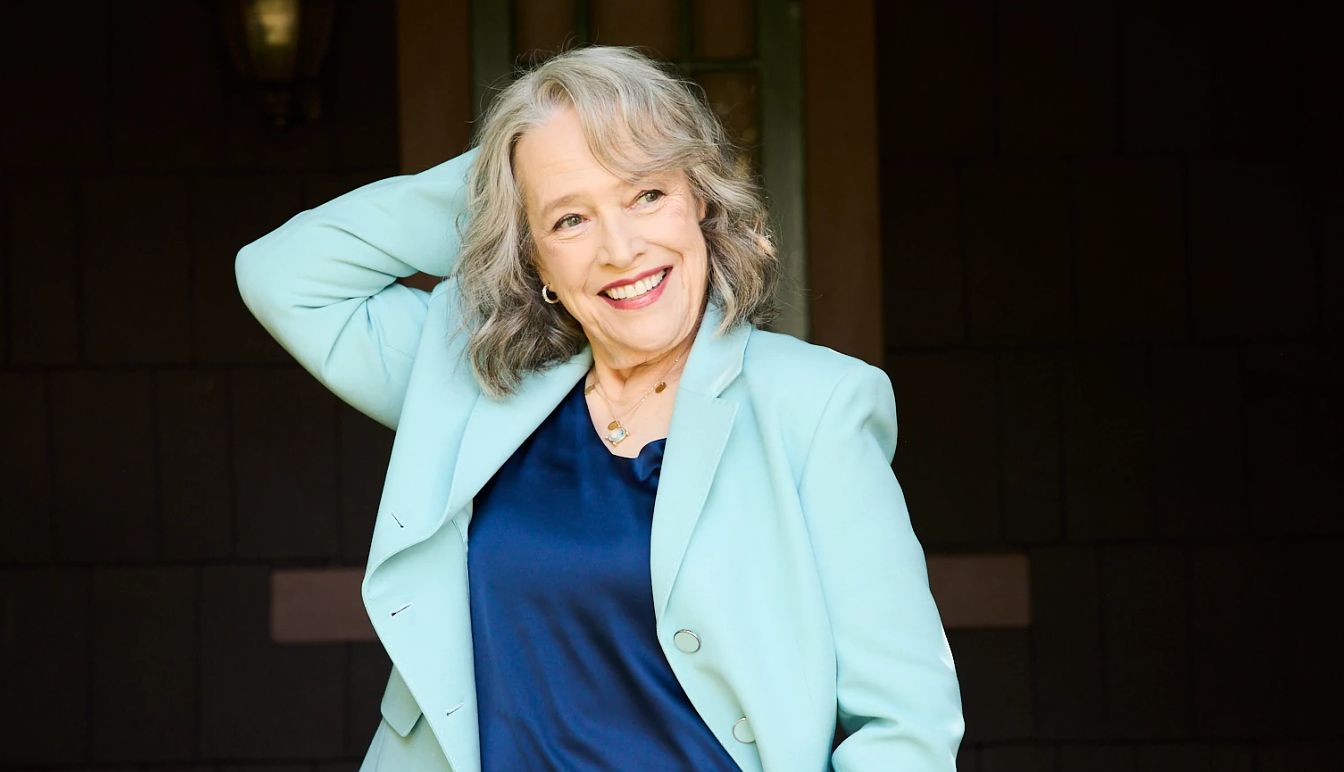Kathy Bates at 76: What I Know Now
- Select a language for the TTS:
- UK English Female
- UK English Male
- US English Female
- US English Male
- Australian Female
- Australian Male
- Language selected: (auto detect) - EN

Play all audios:

The Oscar-winning actress talks about her decades-long journey in Hollywood and why the “Matlock” reboot convinced her not to retire just yet. Facebook Twitter LinkedIn
Kathy Bates, 76, first popped into the public consciousness in the 1980s as a stage actress in New York, winning an Obie award for Frankie and Johnny in the Clair de Lune in 1988. Hollywood
took notice, and she swiftly ascended to fame for her film work, winning an Oscar for best actress for playing Annie Wilkes in Misery.
She had notable roles in such movies as Fried Green Tomatoes and Dolores Claiborne and embraced TV as well, snagging Emmys for her work in Two and a Half Men and later in several seasons of
American Horror Story, a gig she considers career-saving as work had started to dry up for her.
Despite that, another slow career period ensued. Then, about six years ago, she embarked on a steady diet. Over time, she went from 245 pounds to 145, and, she says, basically transformed
her life and luck again. Now Bates stars in the new CBS series Matlock as Madeline Matlock, a once-retired attorney who returns to the legal world and uses a benignly maternal manner to
conceal the fact that she’s the smartest person in the room. She recently spoke to AARP for the October/November issue of AARP The Magazine.
This interview has been edited for length and clarity.
Make every day a success
I grew up in Memphis with older parents — my father was born in 1900 — and I lived a very sheltered life. And I remember my father asking me, because he was concerned that I wanted to
play the guitar and sing and do all of these artistic things, “Aren’t you going to make a success of yourself?” I was very young and said, “I just want to make every day a success. That’s as
far as I can go.”
Honor your parents’ sacrifice
I’ve struggled with the fact that had I not been born, they would have had a happier retirement, instead of me being a millstone around their neck for 18 years. We had a hard time relating
to each other, especially during the ’60s, and my father had to keep working in order to send me to a rather expensive university. But if he hadn’t done that, I wouldn’t be talking to you.
A professor’s best advice
I knew I could act when I was in high school. But when I decided to go to Southern Methodist University, I didn’t know what I was doing. At the orientation the speaker for the humanities
school literally said, “You’re in the wrong school. You’re supposed to be in the art school. Go down the hall. Here’s where you’re going to begin your life’s work.”